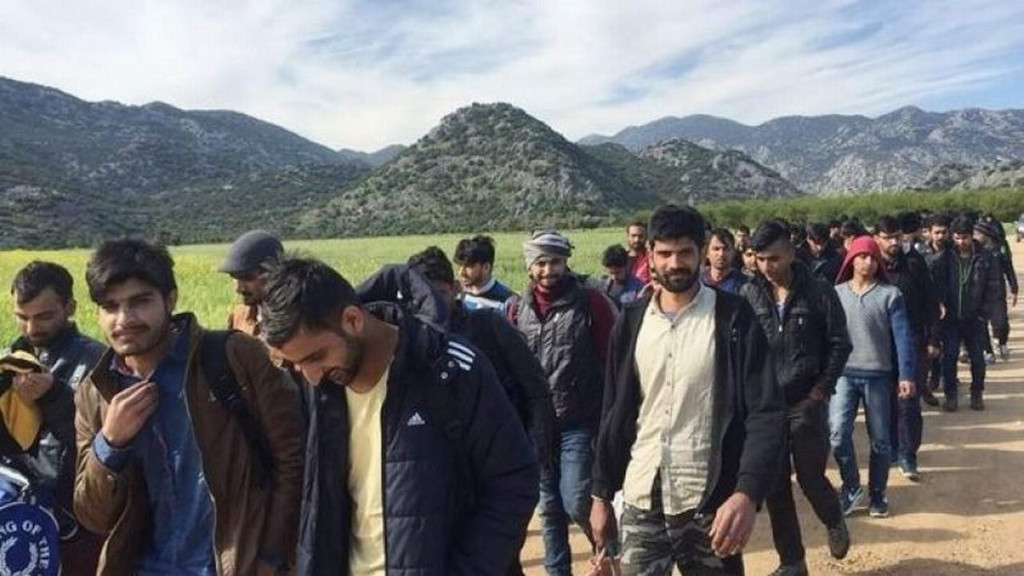Turkey is deporting tens of thousands of Afghans directly to Afghanistan or pushing them back at its land border with Iran without checking to see if they are eligible for international protection, according to the Stockholm Center for Freedom, which cited a Human Rights Watch (HRW) report released on Friday.
The report, titled “No One Asked Me Why I Left Afghanistan,” states that Turkey has increased deportations to Afghanistan and pushbacks at its borders since the Taliban took power in August 2021.
According to HRW, Afghans in Turkey are prevented from registering for international protection, and Afghans facing deportation are often not given the opportunity to apply for refugee status. As of October 20, 2022, the Migration Management Bureau at Turkey’s Ministry of Interior reported 238,448 irregular migrants prevented from entering Turkey, most of them Afghans. In the first eight months of 2022, Turkey deported 44,768 Afghans by air to Kabul, a 150 percent increase from the first eight months of 2021.
The number of refugees in Turkey is estimated at 3.9 million, including 3.6 million Syrians with temporary protection status and 320,000 others, mostly Afghans. Less than seven months from elections, their presence in the country has become a thorny political issue, especially as Turkey battles an economic crisis.
HRW interviewed 68 Afghans, 38 of whom described 114 pushback incidents between January 2021 and April 2022. All of the men and boys who traveled without female family members personally experienced or witnessed Turkish authorities beating or otherwise mistreating them. Many also said that Turkish border authorities shot in their direction, sometimes even at them, as they approached or attempted to cross the border.
“I told them I was a journalist, that my life is at risk, and that I wanted to go to Europe not stay in Turkey, but they didn’t listen to me. They beat us with batons, and with the kind of iron stick that is used for construction,” a 25-year-old Afghan journalist told HRW. The journalist recalled that the Turkish border guards waited until there were no Iranian guards on the other side and then pushed him and 29 others back across the border, HRW said.
None of the Afghans who were interviewed by HRW, who had arrived in Turkey without their families since the Taliban took power, had been able to apply for international protection. Men who are not part of a family that included women or children were told that the offices were closed or were not accepting applications from Afghan men, or they were not given an appointment until months later. When they returned, they still could not register, according to HRW.
Human Rights Watch found that many Afghans facing deportation have no way to apply for refugee status or otherwise challenge their deportation, and that their signatures or fingerprints on voluntary return forms are often forced, obtained through deception, or falsified.
Pushing refugees back to the countries they fled is illegal under the principle of non-refoulement, which forbids a country from forcing refugees or asylum seekers to return to a country in which they are liable to be subjected to persecution. Refoulement is also prohibited under the European Convention on Human Rights, the right to due process in the International Covenant on Civil and Political Rights, and Turkish law.
According to HRW, Turkey does not meet the criteria of a safe third country under Article 38 of the Asylum Procedures Directive because Turkish authorities block access to asylum, forcibly return people claiming to be refugees, and commit other abuses against migrants and people seeking international protection.
“No EU member state should deny access to asylum for Afghans or other nationals under the pretense that Turkey would be a safe third country for them,” said Bill Frelick, refugee and migrant rights director at Human Rights Watch. “EU’s migration management support to Turkey should be made conditional on demonstrated assurances that such support doesn’t contribute to denying people their right to seek asylum or to returning them to places where their lives or freedom would be threatened,” he added.



